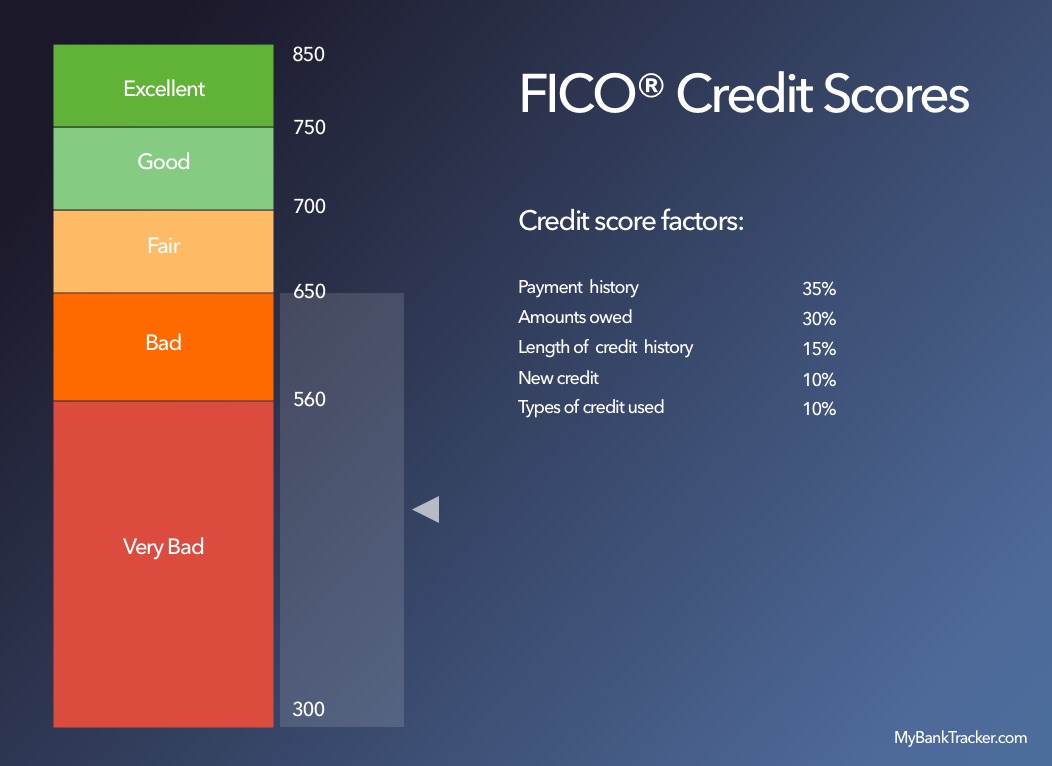Should You Use Personal Loans for Medical Bills?
All it takes is one major medical bill to create many financial problems, even for people with the best health insurance policies.
Left unpaid, medical bills can snowball into medical debt.
Faced with such mounting costs, the only solutions that may come to mind are:
- Dip into your savings and tap all your hard-earned money.
- Pay down the medical debt with a credit card, which can create even more obligations.
Finding a solution to medical debt is critical, as it can lead to severe financial problems, especially for people with good health insurance policies.
Personal loans, however, are a legitimate, cost-effective, and affordable way to pay for medical financing before debt ever enters the picture.
Compare Personal Loans
The Best Personal Loans for Medical Bills
- SoFi
- Earnest
- LightStream
- BestEgg
- Upgrade
There are many lenders to consider when it comes to personal loans. Mybanktracker looked into details like the interest rates, fees, and how lenders evaluate creditworthiness. Consider potential drawbacks, such as how a personal loan can impact credit scores or the possibility of high-interest rates for borrowers with poor credit. With that in mind, these are our top recommendations:
SoFi
SoFi Personal Loans Pros & Cons
| Pros | Cons |
|---|---|
|
|
SoFi regularly gets a lot of praise from us around here, and for good reason.
A champ in online lending, its personal loan portfolio carries some of the lowest rates, attractive terms, and the most comprehensive breadth of repayment terms.
There are no hidden fees, and instant approval is an option. Terms extend to seven years for loan funding up to $100,000.
Earnest
Earnest Personal Loans Pros & Cons
| Pros | Cons |
|---|---|
|
|
Earnest markets its personal loan lineup for financially responsible people, reflected in amenable terms and a more holistic manner of loan approval.
There’s an ability to lock in a meager rate — Earnest bases its credit decisions on so much more than credit score, taking into account other factors such as current income and future earning potential, as well as your education and saving/spending habits.
Earnest’s “radical repayment flexibility” is a quality found in few other lenders, giving borrowers a chance to choose their own preferred monthly payment, or to increase their monthly payment or make extra payments, allowing them to pay off their loan early and beat interest to the punch before it accrues too much.
LightStream
LightStream Personal Loans Pros & Cons
| Pros | Cons |
|---|---|
|
|
LightStream markets “loans for practically anything,” including personal loans for paying medical expenses and debt.
Personal loans start at $5,000 and max out at $100,000, where borrowers have flexible repayment terms. Rates are meager, with no prepayment penalties or hidden fees attached.
Remember that loan amounts and interest rates may vary according to what you use your loan for. Choose “medical/adoption expense loan” from the dropdown menu to narrow your rate.
How Personal Loans Work
What is a personal loan? It’s a loan used to pay for — you guessed it — personal expenses.
Personal loans are ideal for financing not covered by other types of loans, as an auto or mortgage would.
Unlike loans for a car or house, personal loans are unsecured and not backed by collateral, so lenders place a lot of emphasis on credit scores for determining who they approve and the interest rate a borrower may receive.
The better the FICO score, the lower the rate; personal loans may be about 5% to the low 20% range.
Personal loan amounts typically range from as low as $1,000 to $100,000, and terms are as small as a few months to seven years (or more, sometimes).
Personal loans have a myriad of uses, including:
And personal loans can also be used to pay down debt. Many personal loan borrowers use their funds to consolidate credit cards or student loans due to the more affordable interest rates, terms, and conditions that personal loans provide. And, of course, a personal loan also qualifies to pay off medical expenses.
Estimated Interest Personal Loan Calculator
Should You Use Personal Loans for Medical Bills?
Is using a personal loan a good way to pay medical expenses? After all, it is taking on another form of debt to repay another form of debt. Some lenders may also have limitations on what their loans can be used for, so some medical expenses may be excluded.
As with any loan, consider other options before borrowing money with interest. Explore some of these alternatives if medical bills are on your list of expenses:
Negotiate with your medical provider
Doctor’s offices, hospital billing departments, and other medical providers may be willing to charge you a lower rate, especially for patients who can demonstrate financial hardship or for people who are uninsured. Hospitals, some not-for-profit organizations, and clinics may offer special financial aid to help pay for some expenses.
Arrange a payment plan.
If a cheaper bill can’t be negotiated, is your doctor willing to set up a payment plan for you? A $1,000
bill you can’t afford to pay off in full becomes more manageable when divided into four $2,500 payments. Many medical providers also offer credit-based payment plans, averting the immediate need to take out a personal loan.Check for errors
Medical billing offices always make mistakes, so the bill you may have received could be in error, grossly overcharging you for services or, in some cases, charging you for services that weren’t rendered.
When all else fails, open the door to looking for a personal loan for medical expenses.
But don’t settle on the first lender who comes along; seeking and researching the best loans guarantees you’ll lock into the best loan with the best rates, terms, conditions, and more.
Your Credit Score Is Most Important
That four-letter word, or FICO, can be harmful or good, depending on the shape you find your credit in.
The good news is that you can shape your credit, where an 800+ credit score is entirely within reach — and the better your credit, the better your chances of getting approved for any low-interest loan, not just a personal loan.
A good credit score starts around 700, with excellent credit acknowledged by most lenders and creditors, starting at 750 and above to 850. It’s a three-digit numerical indication of your overall credit health, culled from the contents of your credit report: an exhaustive history of your credit behavior and financial habits.

Everything about your credit score and report is calculated, so remember that most lenders will take a conservative approach to approving or rejecting a loan applicant based on their creditworthiness.
But if your credit score isn’t in the best shape, don’t worry!
It’s never too late to start building credit and maximizing your potential for landing a personal loan from one of the lenders we’ve listed above.
Improve Your Chances of Approval
Poor credit can mean few to no chances of getting approved for a loan, and fair credit can place prospective borrowers on the cusp of approval and rejection.
And there’s no reason to live in this lending limbo.
Take some of these tips into account:
Focus on problem areas
Several factors are considered for calculating your credit score, like your debt payment history, the amount of debt you owe, the length of your credit history, and the mixture of credit you carry (credit cards, an auto loan, and student loans are a good mix). If one of those areas needs improvement, make that your focus. For instance, if you have a good repayment history but carry too much debt, repay your balances due at the end of each billing cycle. Or, if you’ve only carried revolving credit, such as credit cards, diversify into installment credit, such as a personal loan.
Consult your credit report.
Obtain a copy of your credit report through AnnualCreditReport.com for a full, thorough view of your credit history. Look for errors and spot mistakes that could affect getting approved for a loan, and dispute them with the credit bureaus collecting your credit data (TransUnion, Equifax, and Experian). Monitor your report every few months to see where your credit stands and where you can make improvements.
Keep your income in mind
Lenders like to see how much money you earn to gauge if you can afford a loan or if you’re potentially borrowing more than your budget can handle. Remember to keep your credit utilization balanced. By keeping your utilization no more than 30 percent of your available credit, you demonstrate that you don’t rely on credit, leaving enough money left over to spend responsibly, save, or invest without going into debt.
Keeping yourself in good health doesn’t guarantee medical bills won’t arise — but keeping your credit in good shape more than ensures you’ll be guaranteed a personal loan of your choice to pay said medical bills.
By first looking at your alternatives to a loan, you may find a solution to paying off medical expenses before a loan is necessary; barring that, finding the right lender, borrowing no more than you need, and keeping your credit strong are the best pathways to lowering your expenses and raising your credit profile. Other resources, such as community health centers, nonprofit organizations, or government programs, might also be another alternative.

